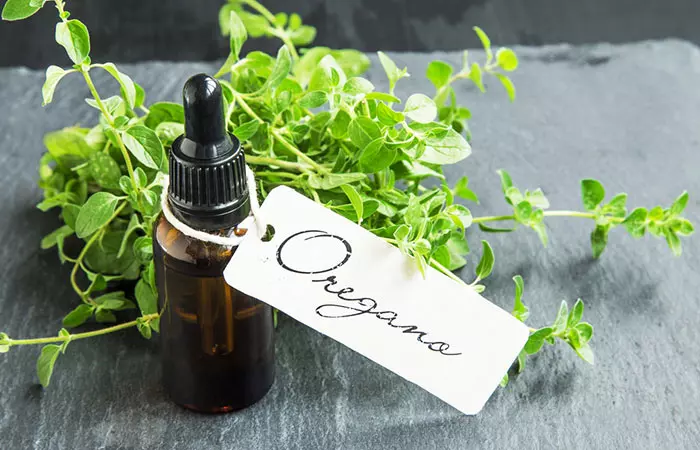What Is A Sinus Infection?
The sinus is a cavity within the bones or tissues that make up your face or skull. These cavities are usually filled with air. When the sinuses are blocked and filled with fluid, microbes can grow and cause infection, leading to inflammation of the tissues lining your sinus. This condition is also known as sinusitis. Sinus infections are classified into different types based on how long the infection lasts.
Types Of Sinus Infection
Acute sinusitis: This type of sinus infection usually lasts for 2-4 weeks and is often accompanied by a runny nose and facial pain. Subacute sinusitis: This lasts for about 4-12 weeks. Chronic sinus infection: This takes 12 weeks or longer to heal. Recurrent sinusitis: This infection occurs several times throughout the year.
A study conducted on 834 subjects found that 107 individuals (12.8%) were diagnosed with chronic rhinosinusitis (CRS) according to the European Position Paper on Rhinosinusitis and Nasal Polyps (EPOS) guidelines. Further, it was found that allergic rhinitis was reported by 167 (20%) subjects. In the next section, we have discussed the causes behind the development of a sinus infection.
Causes Of Sinus Infection
Any infection in your upper respiratory tract can cause an acute sinus infection. Allergens, pollutants, viruses, and bacteria are the main culprits. The viruses damage the lining of the sinus, leading to inflammation and obstruction of the nasal passage that connects the sinuses. This obstruction allows the bacteria to multiply within the sinus and causes an infection. Allergens and pollutants also show a similar effect. Fungi are the major cause of a chronic sinus infections. Individuals with weak immunity are more susceptible to such infections. Pre-existing medical conditions, such as the common cold and nasal polypsi A condition with soft, painless, noncancerous growths on the nasal passage lining found in asthma, allergy, and repeat infection cases. , can also cause sinus blockage.
When you have sinusitis, you experience a range of signs and symptoms. The most common ones discussed below.
Signs And Symptoms Of A Sinus Infection
The signs and symptoms that accompany a chronic sinus infection are the same as that of acute sinusitis. However, the symptoms last much longer and are more severe. The common signs and symptoms of a sinus infection include:
Congestion of the nasal passage A sore throat that is often accompanied by post-nasal dripi A condition in which an abnormal quantity of mucus gathers and drips down the back of the throat. It may lead to a chronic cough. Facial pain Aching ears Headaches Bouts of coughing that cause pain Fever Face becomes swollen Dizziness
Sinus infection, especially the chronic kind, can cause issues and hamper overall wellness and daily life. One of the best ways to treat a sinus infection naturally is using essential oils. Read on to find some of the best essential oils that can be used in the treatment of sinusitis and its symptoms.
How To Treat Sinus Infections With Essential Oils
Essential Oils For Sinus Infections
Some of these essential oils are safe to apply inside your nose along with a carrier oil. However, do a patch test if you are allergic to any essential oils, as they are commonly used in home remedies for sinus infections listed below.
1. Eucalyptus Oil
Eucalyptus oil is beneficial in treating sinus infections. Eucalyptol is one of the most significant compounds in this oil that has a minty fragrance and is widely used in cough syrups and throat drops. It is extremely effective in clearing blocked passages (1). You can use eucalyptus oil for sinus congestion as it possesses antispasmodici A class of medicines used to relieve, prevent, or lower abdominal pain symptoms, including involuntary muscle spasms and cramps. antimicrobial properties, making it a great choice to help relax the overworked chest muscles and fight infections (2). This oil is also relatively safe to use on toddlers (3 years and older) in moderation.
3-4 drops of eucalyptus oil 1 bowl of hot water
Do this whenever you want to get relief from congestion.
2. Peppermint Oil
Peppermint oil is quite popular for its wide range of medicinal uses. It contains menthol that exhibits decongestant properties (3). Peppermint oil has antibacterial, anti-inflammatory, antispasmodic, and expectorant properties, all of which can help relieve the symptoms of sinusitis (4).
3-4 drops of peppermint oil Diffuser
Do this once daily.
3. Lemon Essential Oil
Lemon essential oil is one of the best essential oils for sinus infections. This oil is extracted from the lemon rind and exhibits amazing antibacterial and decongestant properties (5). These properties can help manage sinus infections and improve your immunity by fighting other bacteria that may try to invade your body.
25-30 drops of lemon essential oil Humidifier/Vaporizer
Add 25-30 drops of lemon essential oil to a humidifier and place it in your room. Note: Lemon essential oil contains limonenei A major component in citrus fruit peel oils used as an ingredient in household cleaning and personal hygiene products. , which can degrade certain plastics. Make sure you check with the manufacturer if the unit is compatible with essential oils. Do this once daily, preferably before bedtime.
4. Lavender Oil
Lavender oil has a pleasant fragrance and exhibits natural anti-inflammatory, antimicrobial, antibacterial, and analgesic properties (6). It can also be used as a decongestant to clear the blocked nasal passages and relieve sinus infection.
8-10 drops of lavender essential oil Epsom salt Water
Do this at least 3 times a week.
5. Oregano Oil
Oregano oil has high phenol content and is often used for its distinct flavor. It also has antibacterial and antimicrobial properties (7). These properties can help treat sinus infection and its symptoms.
1-2 drops of oregano oil 1 teaspoon of sweet almond oil or fractionated coconut oil
Do this at least 1 to 2 times daily.
6. Rosemary Oil
Rosemary oil contains eucalyptol, alpha-pinenei A plant-derived fragrant molecule with potential anti-inflammatory, antimicrobial, antimetastatic, and antibiotic properties. , and camphor, which are all beneficial for the respiratory system (8). It also has anti-inflammatory properties (9). This can help reduce the sinus infection and relieve the inflamed nasal passages.
2-3 drops of rosemary oil 1 teaspoon of sweet almond oil or fractionated coconut oil
Follow this procedure whenever you experience sinus congestion or irritation.
7. Chamomile Oil
3-4 drops of chamomile oil 1 teaspoon of sweet almond oil or fractionated coconut oil
Do this multiple times a day. Chamomile oil is widely used for its wide range of benefits. It exhibits powerful antiseptic properties, which can help treat the infection-causing your sinuses to flare up. It also has anti-allergic and sedative properties (10). These properties can provide relief around the sinuses and improve sleep.
8. Tea Tree Oil
The antibacterial and antiseptic properties of tea tree oil make it one of the best essential oils for sinus infections (11). It also acts as a decongestant and can help clear blocked nasal passages. Also, nasal saline irrigation using a neti pot is a proven remedy against sinus infections (12).
1 drop of tea tree oil 1 cup of warm water 1 tablespoon of sea salt A neti pot
Do this once daily. You can use it three times weekly once the acute symptoms are resolved.
9. Clove Oil
Clove oil is widely used to treat a variety of ailments, including sinus infections. It exhibits antiseptic and antifungal properties (13). These properties can help in reducing inflammation and preventing infection in the sinuses.
2-3 drops of clove oil A diffuser
You can do this once daily.
10. Frankincense Oil
Frankincense oil has antiseptic, anti-inflammatory, and expectorant properties (14). It can provide relief from sinus infections by breaking up the phlegm in your respiratory tracts and relaxing the muscles of your lungs.
1-2 drops of frankincense oil 1 tablespoon of honey
Do this at least once daily. Caution: Make sure you talk to a doctor before trying this remedy. Although essential oils can be helpful in treating a sinus infection, you need to take some precautions to reduce unintended effects.
Precautions While Using Essential Oils
Essential oils can be a safe alternative to over-the-counter nasal decongestants. Some of these oils also have therapeutic and aromatic properties that can relieve sinus congestion. However, these oils may not work for everyone. Certain individuals may need to visit a doctor. Know more in the next section.
When To See A Doctor For A Sinus Infection
Duration Of Symptoms: Consider seeing a doctor if your symptoms persist for more than 10 days. Severity Of Symptoms: High fever, a severe headache, or visual disturbances accompanying sinusitis symptoms need further medical evaluation. Worsening Symptoms: Consult a healthcare professional immediately if you initially experience relief but the symptoms worsen over time. Recurrent Infections: Frequent or recurring sinus infections require medical attention to identify potential underlying causes and adopt preventative measures. Underlying Conditions: Individuals with weakened immune systems or chronic health issues should seek medical advice to manage sinus infections effectively and prevent complications.
Your doctor may prescribe you a few medications. In battling a sinus infection, a blogger recounted the prescribed treatment that included amoxicillin for ten days and a different nasal steroid, Q-Nasal. They eventually found relief, stating, “After a few days of congestion, sore throat, headache, etc., I got (mostly) back to normal (i).” Is it safe for babies? The following infographic provides information about lifestyle changes that help lessen sinusitis pain. Check it out!Illustration: StyleCraze Design Team Some of these essential oils are safe for older children. However, consult a healthcare provider before using them on babies. What is the best essential oil to use for clearing sinuses so that you can sleep better? Essential oils like chamomile, lavender, and frankincense have sedative properties and can help clear your sinuses while also improving your sleep. Can swimming cause a sinus infection? Any viruses, bacteria, or fungi in the pool water can cause inflammation and worsen the symptoms of the sinus infection. Hence, affected individuals are advised to reduce the duration of their swims. Can I mix eucalyptus and peppermint oil? Yes, you can. The two oils can help relax muscles, relieve stress, and help clear airways. Their mixture also may have an analgesic effect (15). How does a doctor check for a sinus infection? Depending on the severity of the infection, the diagnostic procedures may include a physical exam, nasal swab, endoscopy, or a CT scan.











